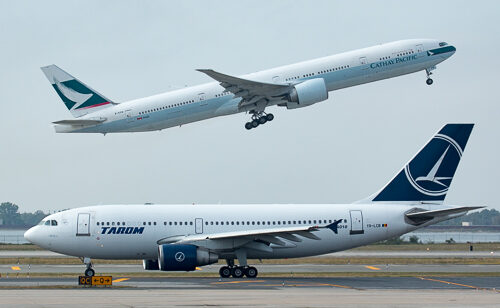
Concerns have been expressed by the National Transportation Safety Board regarding a possibly dangerous matter with Boeing 737 models, a winter-related problem being the failure of a critical rudder control component. On Friday, the NTSB released an urgent safety alert proposing immediate action, alerting that this critical part poses significant safety hazards. An incident occurred in February on a United Airlines flight attributing to a misbehaving rudder system, which caused a loss of control. An thorough investigation ensued after the NTSB discovered the similarity between the incident and those happening in 2019 to external carriers.
In response to the NTSB’s safety recommendation, the Federal Aviation Administration (FAA) stated it had taken action to address the issue and had no knowledge of any impacted parts presently in use with U.S. airlines. The NTSB disagreed with that assessment, however. The NTSB Chair Jennifer Homendy expressed her disappointment in a letter to the FAA Administrator on Tuesday. Homendy blamed the FAA for a delayed response to the crisis, also accusing them of erroneously proclaiming that impacted parts weren’t current in U.S. markets.
The National Transportation Safety Board reported that data from Boeing and the component’s manufacturer indicates up to 16 mounted components in U.S. aircraft, along with hundreds more worldwide that may still be in operation or stored as spares. The Homendy letter emphasized that the FAA’s handling of the matter was given larger priority after the pressing safety recommendation report was issued. Six months after the first occurrence report issued by the NTSB, she continued to express her discontent that the FAA had yet to take immediate measures to prevent rudder control system failures.
The FAA came under crucial examination by the NTSB’s assessment. The company in question faced criticism for its response, with a particular focus on its belated and dormant notification to airlines about faulty components. The absence of communication between U.S. and global carriers presented carriers from both countries with the possibility of grave safety hazards.
Subsequent the NTSB’s warning, the FAA reaffirmed its dedication to engaging to all safety guidelines it had been advised to. The FAA has indicated that it regards the NTSB’s recommendations with fantastic importance and aims to hold rapid meetings with universal civil aviation organizations affected by the issues at hand. The FAA will carry out supplementary simulator assessing in October to gain extra insight into the threats caused by the faulty rudder component in chilly weather.
The exchange reveals a deeper conflict between the FAA and the NTSB, two agencies mainly accountable for guaranteeing aviation security and safety. The FAA has the authority to enforce regulatory changes and compel compliance, however it is the NTSB that conducts investigations and provides safety recommendations. The regulatory agency’s concerns suggest that the FAA may place a higher value on regulatory compliance and operational efficiency over performing self-starting safety measures in the case participating Boeing’s 737 models.
The dialogue between the two agencies highlights the complex issues in maintaining safety standards in the extremely governed aviation sector. Any novel issues with the 737 series, particularly following its problems like the 737 MAX incidents, will come under near examination from the NTSB, the FAA, and the global aviation community.
The NTSB’s safety recommendation is an urgent call to take additional powerful action to prevent upcoming catastrophic plane crashes of the Boeing 737. The aviation world is on elevated alert as the FAA weighs in extra actions, awaiting nervously to witness the progression of events and rapid political intervention in this situation.
ㅤ




